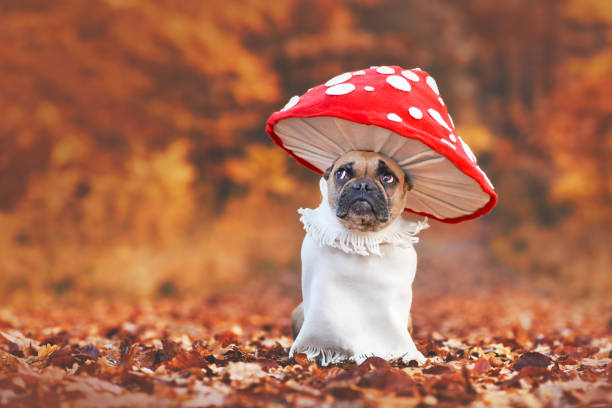Table of Contents
An Overview of Police Drug-Detection Dogs

Working with law enforcement officers, police drug dogs are invaluable for detecting illicit substances trafficked across borders, through transit hubs, or hidden in vehicles during roadside stops. These highly skilled K9s use their ultra-sensitive noses to sniff out a wide range of illegal drugs.
After extensive training to hone their scent detection capabilities, drug dogs are certified to work in field operations. Their alert—usually a passive sit-down near the smell—gives the police probable cause to conduct searches that may uncover drugs or paraphernalia.
The most common police drug dog breeds are:
- German Shepherds
- Belgian Malinois
- Labrador Retrievers
- Dutch Shepherds
No matter the breed, these dogs demonstrate the exceptional drive, stamina, work ethic, concentration, and obedience needed for the intense and demanding role of narcotics detection.
How are drug dogs trained?

Training a puppy to become a police drug detection dog is a rigorous process requiring months of full-time work. Young dogs are screened for suitable temperament and drive before recruitment. Formal training then begins:
Phase 1 – Obedience
- Mastering basic cues like sit, stay, heel, come, down, and stand, even amid distractions.
Phase 2: Odour Imprinting
- Introducing specific drug scents in carefully controlled settings and rewarding alerts. Repeated exposures imprint the odours.
Phase 3: Search Training
- Conducting searches for hidden scented training aids in various environments like vehicles, rooms, containers, and luggage. Difficulty and distractions increase over time.
Phase 4: Certification
- Formal testing to confirm reliable detection of target odors before earning certified working dog status. Yearly re-certification is required throughout their career.
In some programs, drug dogs are trained to recognize various odors like heroin, cocaine, MDMA, and marijuana. Others use combinations of drugs that smell together. Maintaining a strong work ethic and high accuracy is always emphasized.
How Do Drug Dogs smell Drugs?
A drug dog’s phenomenal sense of smell gives them the uncanny ability to detect contraband. But how do they sniff out substances hidden carefully out of sight? What exactly are they smelling?
The key lies in volatile organic compounds (VOCs). All drugs emit unique VOCs that dissipate into the surrounding environment. It’s these signature VOCs that drug dogs detect, not the drugs themselves.
For example, the primary psychoactive VOC emitted by marijuana is tetrahydrocannabinol, or THC. Similarly, psilocybin mushrooms release a distinct VOC profile that is detectable as minute airborne particles. A drug dog’s sensitive nose picks up these traces we can’t smell.
Even if drugs are stashed inside sealed containers, the VOCs still slowly leak out. Given the right conditions, highly trained dogs can detect VOC traces from drugs even days or weeks after initial handling.
Can Drug Dogs Smell Magic Mushrooms?
Regarding magic mushrooms, the short answer is yes – specially trained drug dogs today can detect psilocybin mushroom scents.
However, this has not always been the case. In the past, few police dog training programs incorporated psilocybin as a target odor. Delta-9-tetrahydrocannabinol (THC) from cannabis and other street drugs were higher detection priorities.
But with changing U.S. drug laws and mushroom decriminalization in cities like Denver, Ann Arbour, and Washington, D.C., police dog training is evolving. Given psilocybin’s unique VOC profile, drug dogs can be trained to pinpoint it using the same scent imprinting techniques utilized for other narcotics.
In states where all psilocybin remains illegal, police dogs may already be learning to sit down and alert when they encounter the smell of magic mushrooms. So it’s wise to assume properly trained drug dogs can sniff out mushrooms and their underground mycelium networks.
Can Drug Dogs Smell Psilocybin?

Specifically, drug dogs can detect the presence of psilocybin itself, the psychoactive compound occurring naturally in magic mushrooms.
Psilocybin causes mushrooms to emit a distinct pattern of volatile organic compounds (VOCs) into the surrounding air or environment. And VOCs are what drug dogs are trained to pick up.
The scent of psilocybin itself is invisible to humans. But police K9s can isolate the unique chemical signature when properly imprinted with psilocybin VOC samples during training.
So while dogs don’t sniff out mushrooms directly, they can pinpoint the vaporous psilocybin compounds evaporating off them or mushroom materials like grow kits or mycelium cultures. This alerts officers to likely mushroom presence so they can perform further searches.
Are Drug Dogs Trained to Detect All Illegal Drugs?
While many urban legends claim police dogs can smell virtually any drug, they are specifically trained to detect vital illegal substances that officers frequently encounter:
Marijuana: The most widely trained drug thanks to marijuana’s abundance and distinct, pungent odor. THC vapour is easy for dogs to isolate.
Cocaine: The vasoconstrictive smell of cocaine allows reliable detection, even when heavily concealed.
Heroin: Opiates like heroin have a uniquely sharp, vinegar-like smell profile that dogs can isolate.
Methamphetamines: The toxic chemicals used to manufacture methamphetamine create an acrid ammonia-type scent.
MDMA (Ecstasy or Molly): Signature methylenedioxy-group compounds make pinpointing MDMA possible.
But can a dog detect every single illegal substance? Not reliably in most cases. Emerging street drugs pass under the radar until specific scent training is done. And large quantities of sense are usually needed for detection. So-called “safety” in small amounts of some illegal drugs is a myth.
Pros and Cons of Drug Dog Evidence
Drug dogs can provide law enforcement with probable cause for searches, but what are the pros and cons of relying on canine detection as evidence?
| Pros | Cons |
| Extremely sensitive noses detect minute scent traces | Can falsely alert when distracted or attempting to please handler |
| Notice VOC signatures that are invisible to humans | Not every illegal substance produces unique VOCs they can smell |
| Support officers in uncovering concealed drugs/paraphernalia | Handler bias or misinterpretations of dog behaviour affect reliability |
| Act as deterrent, making smugglers wary transporting drugs | Require substantial initial and ongoing training investments |
| Sniff out odours that persist long after drugs are gone | Changing state laws necessitate retraining dogs on new odours |
| Quickly scan environments like vehicles that would take officers hours | Quantities needed for detection vary between different drug types |
| Prevent excessive random human searches that could be unconstitutional | Defence challenges to dog accuracy often require corroborating physical evidence |
Well-trained drug dogs provide invaluable drug detection assistance. But departments and courts increasingly recognize their limits compared to technology like spectrographs that precisely identify microscopic VOC traces. Objective tools paired with canine teams support more rigorous evidence standards.
food that drug dogs must avoid
Drug detection dogs require specialized diets to stay healthy on the job. Some people’s foods can be toxic for dogs, so police K9 handlers are careful to avoid feeding their partners foods like oatmeal cream pies, custard, guava, , grapes, chocolate, onions, alcohol, nutmeg, avocados, Hawaiian bread, macadamia nuts, xylitol gum, and raw yeast dough.
Even though working dogs are highly trained, they are still vulnerable to foods that can sicken pet dogs. They do not adapt their digestive system to handle excess fat, dairy, sugar, or toxic substances. To keep active working breeds in peak condition, handlers feed them kibble formulated for their unique nutritional needs.
Should You Rely on Drug Dogs Nabbing You?
Given their scent limitations and ongoing legalization trends, relying on drug dogs to detect your illegal stash can be risky. Stashing mushrooms or weed around drug-sniffing police K9s is unwise for several reasons:
- It only takes trace amounts of odors for detection.
- Dogs are often trained specifically to find new drugs, like mushrooms.
- You can’t know what scents any dog is trained to pinpoint.
- A drug dog’s alert still gives probable cause for extensive searches.
Instead of banking on avoiding drug dogs, reconsider whether transporting substances across jurisdictions with murky legal territory is worth the potential civil and criminal consequences. Consider how and where you possess any substances not permitted federally or in states where they are not permitted.
Summing Up: Are Drug Dogs Trained To Smell Magic Mushrooms?
To recap, specially trained police dogs can and do alert on magic mushrooms thanks to the distinct scents they emit. With mushroom scent samples, drug dogs undergo the same rigorous imprinting process to detect psilocybin VOCs as they do for cannabis, cocaine, heroin, and other priority narcotics.
However, detection potential depends heavily on location-specific laws and enforcement priorities. Expect drug dogs to have mushroom-sniffing capabilities anywhere these mushrooms remain illegal or prohibited. But as attitudes towards psychedelics shift, training may skip psilocybin altogether in areas where possession is allowed.
The bottom line? With no sure way to know which scents police dogs are trained to pinpoint, never assume any drug will slip by undetected. When in doubt, err on the side of caution by avoiding carrying questionably legal substances across state lines or onto transports patrolled by K9 drug detection teams.
FAQs
What does it mean if a drug dog doesn’t alert you?
A lack of alertness doesn’t guarantee you have no detectable scent traces. It may mean levels are too low for that specific dog to notice, their training didn’t include your substance, you don’t have anything illegal, or the dog is momentarily distracted or tired. Never assume you’re in the clear.
How can you tell what drugs a police dog is trained to find?
You can’t know just by looking. Departments don’t release drug dogs’ full scent training capabilities for strategic reasons. It is best to assume all police dogs will likely recognize popular substances like marijuana, cocaine, heroin, and possibly mushrooms and ecstasy today.
Do drug dogs smell vape pens?
It depends on the contents. Distillate vape pens have an odor that dogs can pick up. But vapes containing purely THC with no other volatile compounds are more difficult for dogs to pinpoint. The scent may dissipate too quickly before they can sniff it.
Can drug dogs smell edibles?
If cannabis or other drugs are cooked into edibles, police dogs can still detect residual scent signatures on containers or packaging. The dog alerts on VOCs, not the food items themselves. They won’t nibble on your brownies!
How do you know if a police dog’s alert is correct?
Drug dog alerts alone don’t confirm drugs are present, only probable cause to search. Finding illicit substances, paraphernalia, or residue must validate that the dog was correct. Dogs can be a false alarm, so searches verifying accuracy are essential.
The super-sensitive smelling abilities of police drug dogs continue to evolve along with the underground drug landscape. Never take for granted that any substance, mushroom or otherwise, will go undetected by a meticulously trained canine nose.







